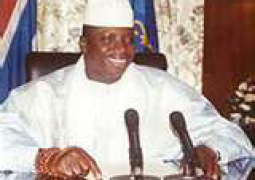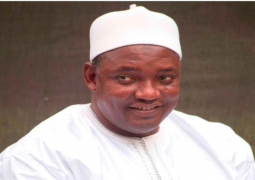It was not long ago when we lauded the increase in the number of radio stations in the country as a good sign for the country’s democracy. This increase, we said, was a positive one for a number of reasons.
Firstly, it shows that there are eager, enthusiastic and motivated entrepreneurs in the country who are willing to take risks in the world of private media business.
The second benefit is that the people of The Gambia now have more choice.
Choice is very important, when it comes to the media.
People should have access to a wide variety of media, so that they can experience different types of music, views and opinions.
There is more than one newspaper in the country, and this is positive. We hope that the number will continue to increase, and with it people’s access to information.
However, our point of contention here is the fact that Teranga FM, a commercial radio station in Sinchu Alagie village in the Kombo North district of the West Coast Region, still remains off air barely a month after it was ordered to do so for the second time.
This, to us is another setback for the country, considering the role that the radio station played during its short years of existence.
But as we said on these pages not long ago, this does not come as a surprise to us, considering the fact that Citizen FM radio and Sud FM radio, both dynamic stations with captivating news programs, amidst a lot of other imaginative programming, were also closed down.
In our view, the daily review of the news carried in the independent press by Teranga FM, if that is the reason for ordering them off air, was in line with their legitimate duty to inform, entertain and educate their audience, and this case has pointed up yet again the hazards of professionalism in this country.
Indeed, this is the problem confronting Gambian media institutions and their workers. They are expected to behave like amateurs, and to exhibit mediocrity.
It is the case that whenever a journalist attempts to be a true professional, in this country, and engages in carrying out his or her legitimate assignments, some quarters misconstrue that as ‘hostile acts’ - whatever that means.
Nothing can be further from the truth than to regard journalists practicing their craft responsibly and effectively as a threat.
The duty of journalists is to gather and disseminate information for public consumption; it is not to aid specifically or purposely facilitate the strategic advantage of any particular group, institution or person.
We, therefore, call on the concerned authorities to have a rethink, and allow the radio to resume operations.
They must consider the plight of the many listeners of Taranga FM, most of whom rely on the radio station to know what is happening in the society, which is their right.
“Every mind must make its choice between truth and repose. It cannot have both.”
Anonymous



